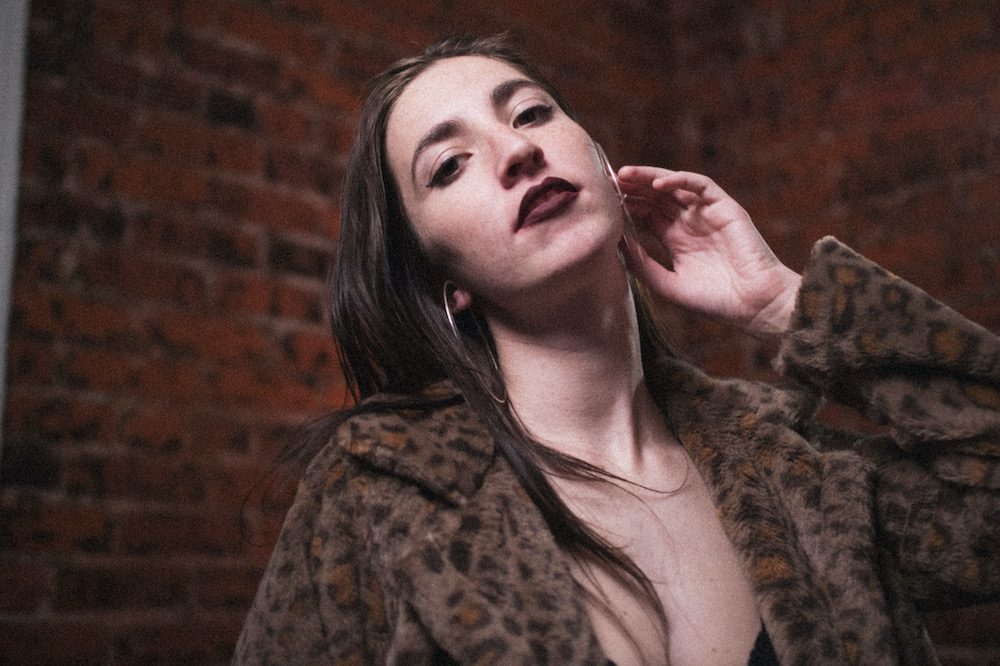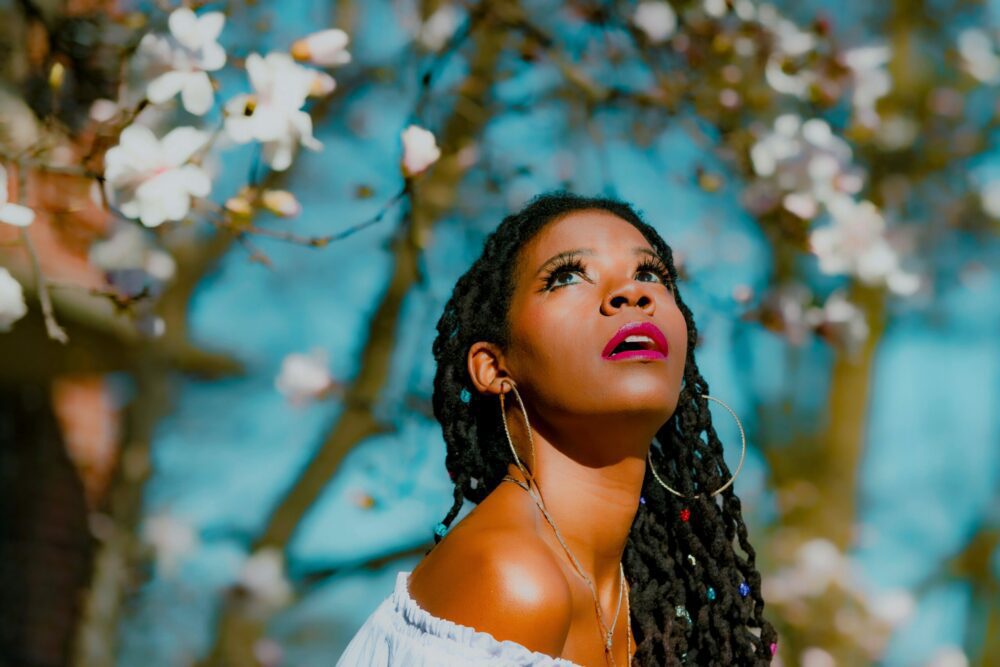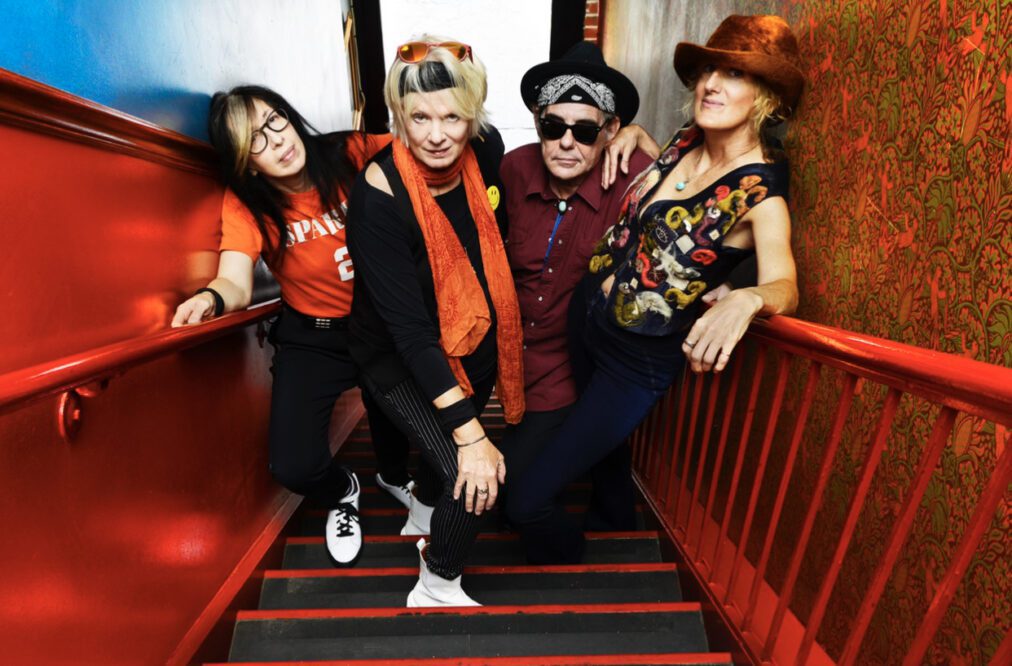PREMIERE: Valeree Preaches Sexual Liberation in “Deity” Video


Some people view spirituality and sexuality as two conflicting forces — which is precisely why indie soul-pop artist Megan Mortensen (known by her stage name Valeree) decided to wed them in her latest single, “Deity,” an ode to the consciousness-elevating power of sex.
“I’ll be your deity, fall to your knees/Oh, honey, pray to me, between the sheets/Get down and start to confess/Come into the church between my legs,” her powerful voice soars in the chorus, against soulful piano. Blatantly sensual, with R&B influences that showcase Valeree’s impressive vocal range, the song borrows undeniable lyrical inspiration from Hozier’s “Take Me to Church.”
“I always thought that the concept of sex and religion in a song was interesting — it feels dangerous,” Mortensen says. She was raised without a religion but grew up among religious people, and became interested in how religious dogma affects believers’ sexuality, since she didn’t feel those same pressures.
“I’ve noticed that a lot of stuff is taboo, like sex before marriage,” she explains. “And having not grown up with that, I don’t get it at all. I don’t really understand why that would be the case, why it’s supposed to be this thing that’s just for procreating.”
The song unabashedly celebrates sex as a way to commune with a higher force rather than an affront to the divine — as does the video, premiering today, where Valeree dances sensually in lingerie and boots and stands under a waterfall in a white gown while belting “hallelujah.”
In order to make sure the video came from a woman’s perspective, Mortensen co-directed it. “It was really important to me that this wasn’t a video that was just showing me for the male gaze or some guy behind the camera,” she says. “I wanted it to feel like I am in power, so you’ll notice quite a few angles [where the camera is] looking up, which shows a power dynamic. I wanted it to be sexy because it’s supposed to be about me feeling sexy and feeling empowered and whoever’s hearing it being a part of it, but for my own eyes — not the eyes of somebody else.”
Mortensen also aimed to convey her own sense of femininity in the video. “For me, something that makes me feel in touch with my feminine side is sex,” she says. “The part of me that feels powerful also feels feminine to me. I equate those two things, but I feel like it’s up to each individual what makes them feel feminine.”
Mortensen wrote “Deity” two years ago; last year, she and her producer did pre-production over Zoom before a socially distanced recording, where she instructed her band to play in the style of Fiona Apple’s “Slow Like Honey.” The song is included on her second EP, it’s fine, I’m fine, which comes out March 19 and includes her previous single “Broke,” a mix of Motown and modern production, and something of an ode to Etta James that also manages to address themes of feminism and capitalism.
The LA-based singer, who works as a server at two restaurants when she’s not making music, has been playing piano since she was little and began performing at bars around LA at age 17. She put out her first single, “Masochist,” in 2019 and released a debut EP by the same name in 2020. With another single on the way, she plans to keep releasing songs until she’s ready to record a proper full-length debut, which she has already written.
Several of her previous songs, perhaps most obviously “Any Other Way” on Masochist, have sensual vibes similar to “Deity,” and she hopes her music can help people – especially women and non-binary folks, view their sexuality as something that exists for themselves, rather than for others. “Women have been sexually abused and viewed as objects and viewed as property of men for so long that I think it’s a huge deal to take that back,” she says.
“There’s all these double standards — men come out with these songs all the time about fucking women and it’s celebrated, and you look at the backlash of Cardi B and it’s a completely different story,” she adds. “I want to change that narrative. I feel like I’ve been treated as an object, and I’ve seen so many other women and non-men deal with that, and I think a huge part of changing that is representation and showing things like women saying ‘I’m in charge of my body and I’m proud of it and if I want to have sex I’m gonna have sex; it’s not up to you.'”
Follow Valeree on Instagram and Facebook for ongoing updates.




